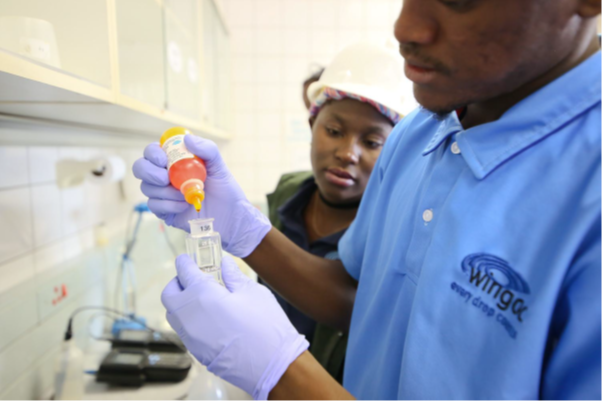Windhoek, the capital of Namibia, took the decision long ago to reuse its wastewater to address the city’s scarce water resources and produce drinking water directly for its inhabitants. Ever since Veolia began working alongside the city’s authorities back in 2002, the Group has demonstrated the benefits of its innovative and sustainable water cycle model by operating a high-tech plant that supplies water to the taps of nearly 400,000 inhabitants . An operations management contract has just been extended.
Faced with chronic water scarcity and no nearby waterways, Windhoek was the first city in the world to take the decision to produce drinking water directly from its municipal wastewater. This process provides the city with an essential additional water supply. With a plant offering a capacity of 21,000 cubic metres, Veolia is meeting the growing needs of the people flocking to the capital and providing them with daily access to water. Several technologies have been put into action, including biological filtration, granular activated carbon filtration, ozonation and ultrafiltration. This series of steps forms an innovative “multiple barrier” process and reproduces the natural water cycle while guaranteeing water quality that meets the highest standards in the world .
A shining example of the ecology of solutions The water produced is continuously subjected to quality control procedures during the production process and when the water leaves the plant. In all, once the wastewater has been received from the treatment plant, it takes about 10 hours until the water is ready to leave the drinking water plant. The high-quality recycled water has prompted the authorities to install a number of distribution points in the townships to ensure that water is available in sufficient quantities and improve inhabitants’ access to water and wastewater services.
“In the wake of World Water Day, Windhoek represents a symbolic example of the ecology of solutions that we are looking to ramp up in communities around the world, in response to the ever growing tensions caused by scarce water resources. These tensions continue to grow due to climate change, population growth, growing levels of urbanisation and agricultural needs,” explains Estelle Brachlianoff, Chief Executive Officer of Veolia .
” Our plant is now supplying more than a third of the drinking water needed by the inhabitants of Namibia’s capital . It serves as everyday proof that a city’s drinking water supply can be increased with water that has been recycled in a safe and responsible manner.”



